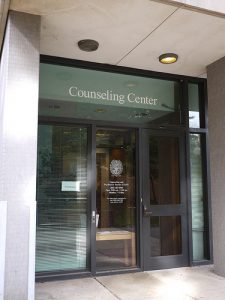Eight Georgetown women’s golf players have left the team since 2022, and at least five cited the team’s head coach, Kate Schanuel, as the source of their departures in interviews with the Voice.
Schanuel arrived at Georgetown in 2017 and won BIG EAST Coach of the Year. She received the honor again last year when Georgetown golfers were selected as the BIG EAST Player of the Year and Freshman of the Year.
However, despite her success, former Hoya golfers believe Schanuel’s leadership fragmented the team and created a toxic environment, leading to mental health issues and poor player development. Last season, three of the team’s seven golfers left, forcing the team to hold open tryouts.
“I wanted to be a professional golfer, but she made me change my career path while I was here,” another former player said.
Schanuel did not respond to the Voice’s repeated requests for comment. A university spokesperson did not respond directly to questions about the players’ allegations against Schanuel. However, the spokesperson wrote that, “The Department of Athletics takes seriously any concerns raised by our student-athletes and works to address them comprehensively, fairly, and consistently with Department and University policies and processes.”
In interviews with five former players who spoke to the Voice on the condition of anonymity, each had similar feedback on Schanuel’s leadership style. Players described her as “emotionally manipulative” and “malicious towards certain individuals.”
“[Schanuel] made me question my own worth and who I am as a person,” one said. “The things I grew up thinking were my strengths as an individual, she tore them down.”
One player said that after she failed calculus, Schanuel repeatedly made disparaging comments on her math ability. During a tournament, when a player was required to calculate the distance for a shot, she said Schanuel told her, “You know how to execute and do math well, I better tell your professor that; maybe he’ll give you extra credit.”
“That was in the middle of a tournament. That is the last thing you should be talking about, let alone make fun of a kid for,” the player said.
After Schanuel made these comments, the former player said seniors on the team started making fun of her math ability, too.
The interviewed former players said that Schanuel also displayed favoritism. One said that “team decisions, lineups, and even day-to-day treatment often revolved around who she liked, not who earned it.”
According to one player, Schanuel excused a favored team member from having to qualify for the St. Andrews Links Collegiate—a tournament at the renowned Old Course in Scotland. This ensured the favored player was able to compete, even after a string of poor performances.
Players said Schanuel also manipulated team dynamics. In one instance, a player said she told Schanuel that she wanted to quit the team; however, without her there weren’t enough players on the team for a tournament roster. Schanuel told the player that if she quit, Schanuel wouldn’t headline the pre-college camp run by the player and her mom.
“[Schanuel] was like ‘if you don’t go through your commitment with me on this team, then I won’t go through my commitment with you,’” the former player said.
Former players’ frustration with Schanuel extended into practices as well. Multiple former players expressed frustration with the lack of feedback and development. Some players made excuses to miss team practices, or “punishments,” as one former athlete described, and avoid Schanuel.
“We never really played golf,” one former player said.
The former players explained that Schanuel sometimes prohibited players from practicing at the driving range, restricting their opportunities to improve. Instead, she only allowed the team to play on the course, a two- to three-hour round trip from campus, allowing for only about six holes—roughly 20 shots—per practice.
“In a different environment, one where support, instruction, and belief in players were consistent, I know I could’ve become a better golfer,” one said.
Several former players told the Voice that they developed anxiety and depression during their time on the team.
“I hated my life because I hated being on the team, and my team was my entire life here,” one said.
The resources made available by Georgetown Athletics to address these mental health challenges were also inadequate, according to the former players.
The ratio of student athletes to athletic counseling department mental health practitioners is more than 700 athletes to three practitioners, with a fourth one joining in August, according to a university spokesperson.
“The Athletics Department, and specifically the Sports Medicine department, is dedicated to providing high-level holistic medical care,” a university spokesperson wrote. “Staff are available night and day to address any needs for student-athletes who choose to access available resources.”
Georgetown is one of the only athletics departments in the BIG EAST to have multiple full-time psychologists on staff; however, former players said their mental health still deteriorated as they remained on the team.
“I had mental health issues, and the program made my life so difficult,” one former golfer remarked.
The mental health struggles of the interviewed former players and their treatment on the team overshadowed their passion for playing golf.
“It was so unlike me because I love practicing and being on the golf course, but the entire spring I didn’t want to be at the golf course,” one former athlete said.
The former athletes hope that Georgetown will provide a more supportive and nurturing environment for future players.
“Players need support systems that prioritize their mental health, their development, and their dignity,” one former player said. “This is bigger than just wins and losses, it’s about the well-being of young women who deserve better.”







